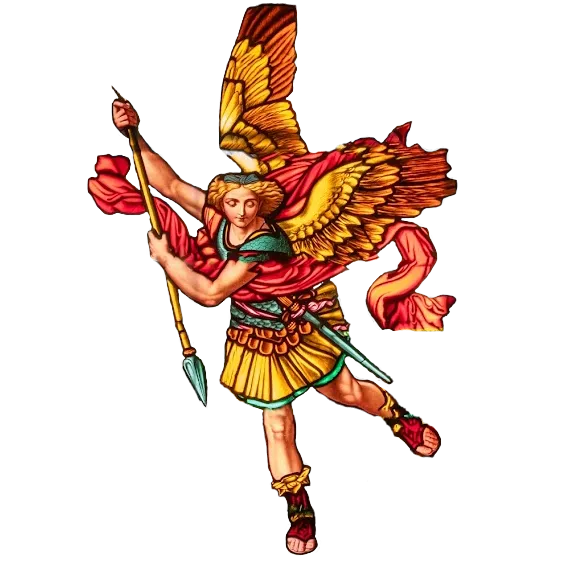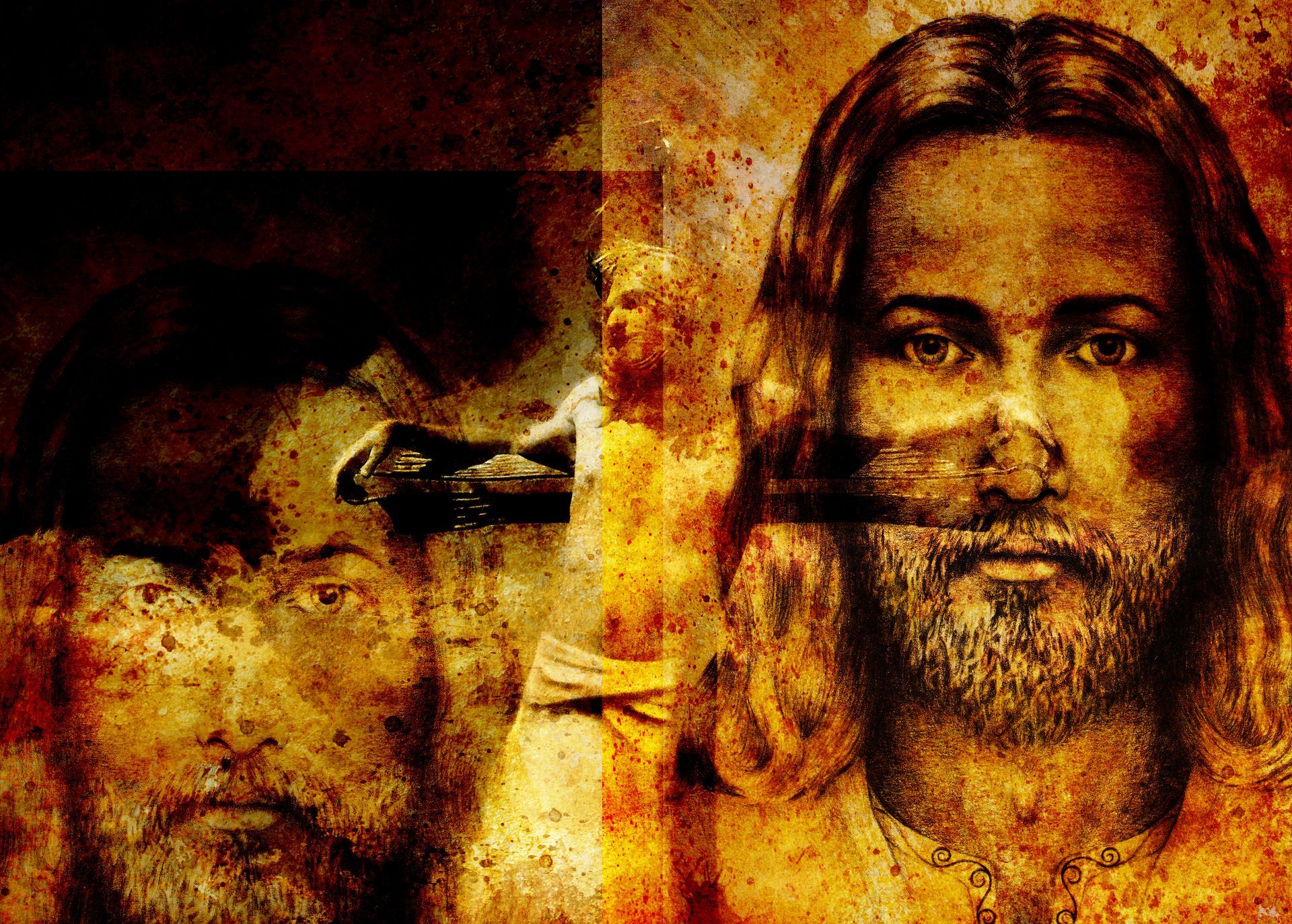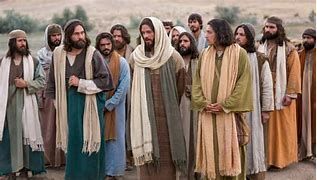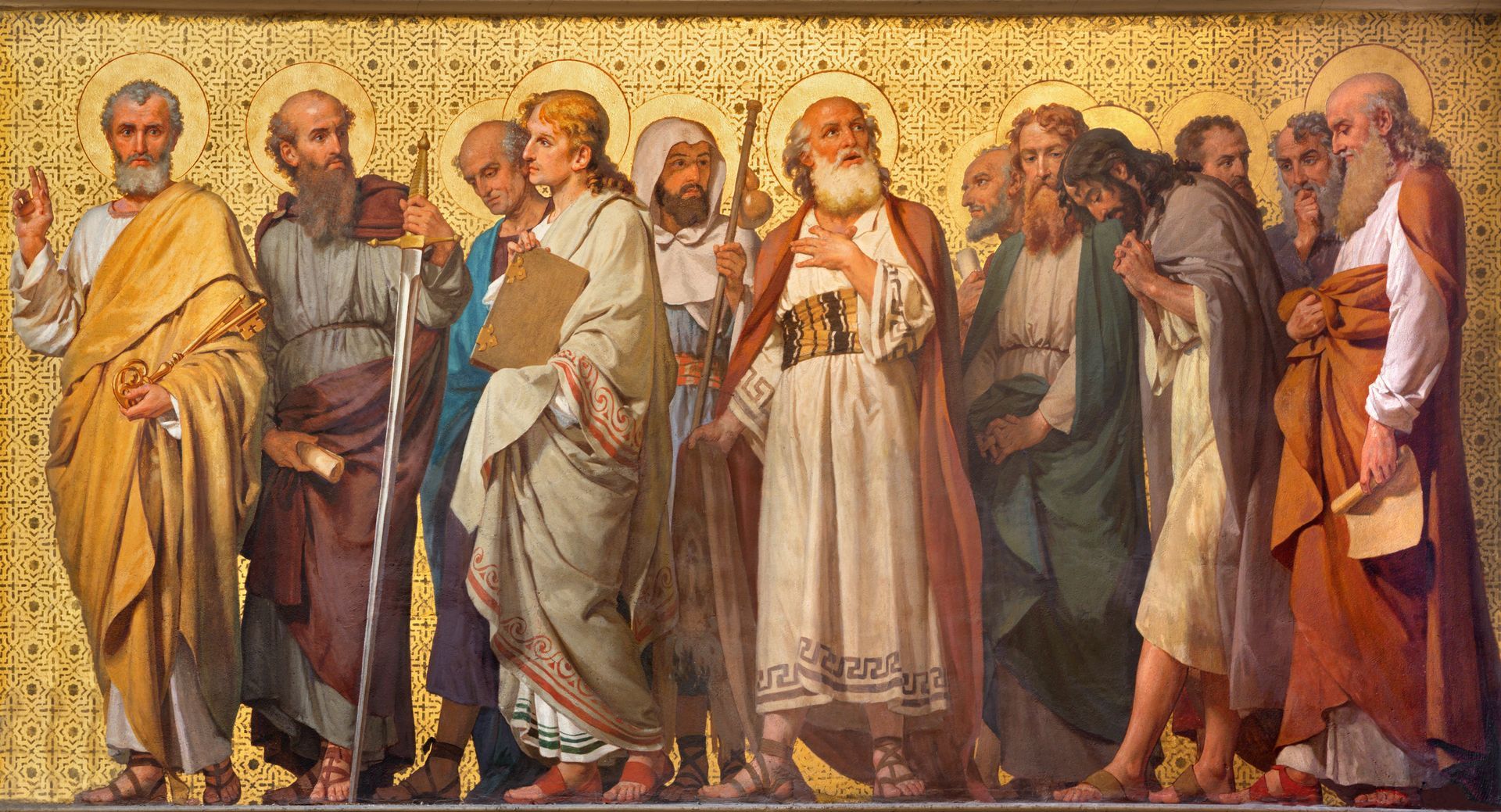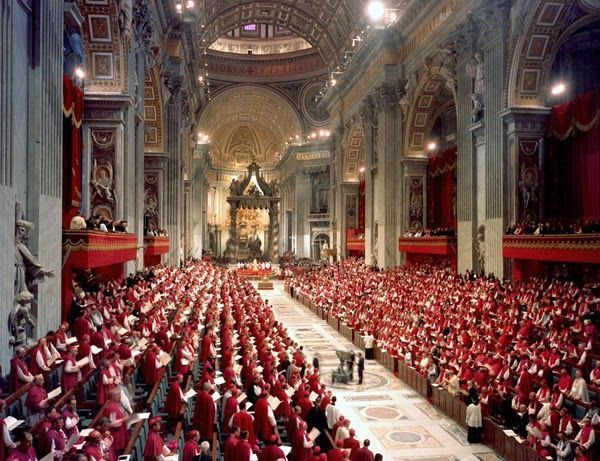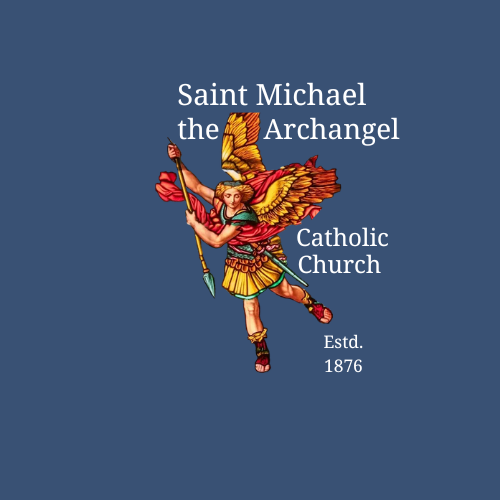Primacy of Peter
Jesus said to [Simon Peter], "I say to you, you are Peter, and upon this rock I will build my church...
On what scriptural basis do Catholics believe in the papacy?
Jesus said to [Simon Peter], "I say to you, you are Peter, and upon this rock I will build my church, and the gates of the netherworld shall not prevail against it. I will give you the keys to the kingdom of heaven. Whatever you bind on earth shall be bound in heaven; and whatever you loose on earth shall be loosed in heaven."
Matthew 16: 18-19
The papacy, or the office of Pope, derives directly from the primacy of Saint Peter among the Apostles and the leadership for which Christ designated him when Christ established His Church.
The authority given by Christ to Saint Peter and to his successors, the Popes, is called the Primacy of Peter. While the role of the papacy has evolved through the centuries, it is the Pope, the Vicar of Christ, who has the final authority to resolve and clarify matters of faith and morals, and it is the Pope who helps preserve the unity of the Church.
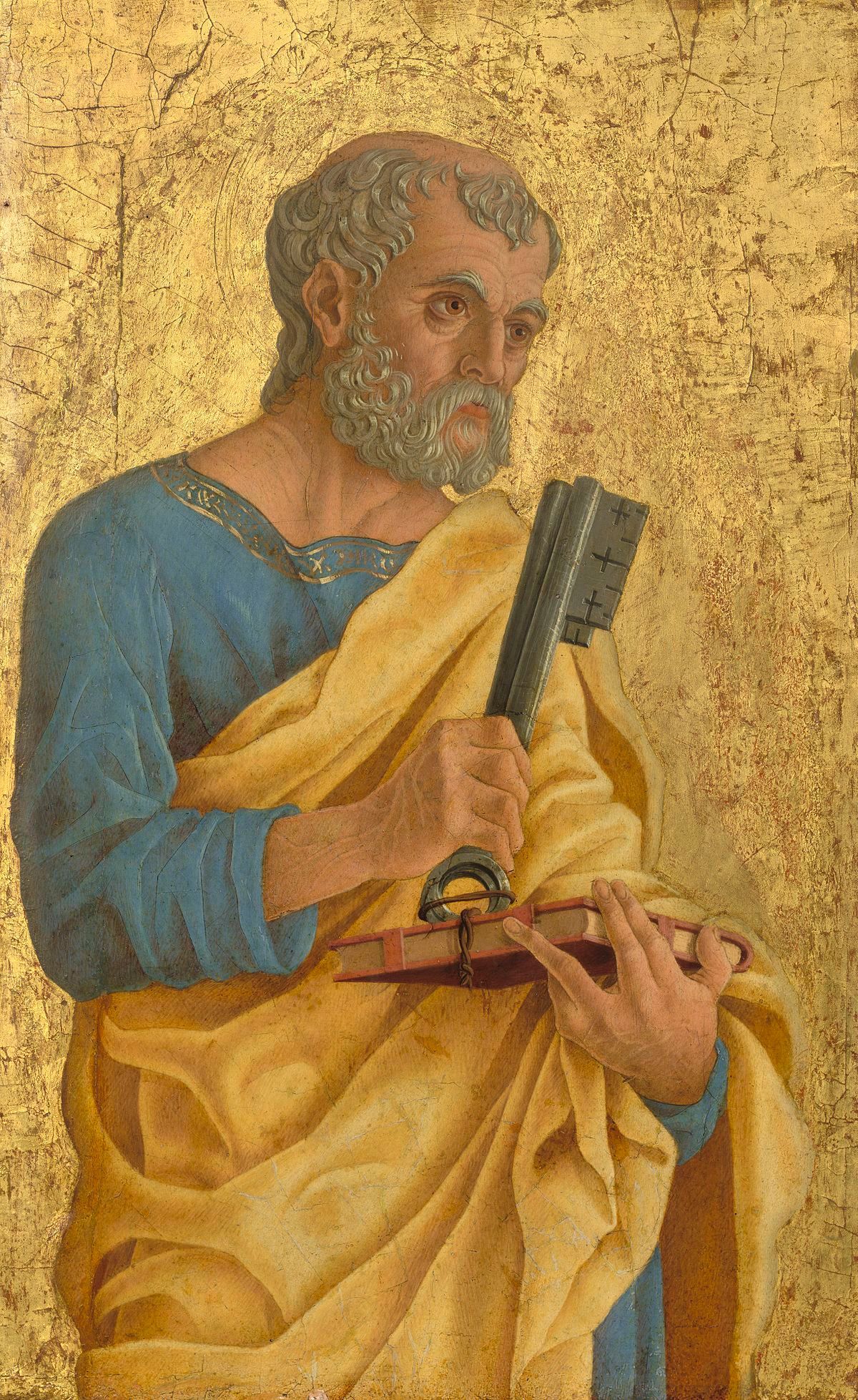
In Scripture, evidence for the Primacy of Peter is both implicit and explicit:
- All of the Twelve Apostles are listed four times in the Scriptures, and Saint Peter is named first every time. (cf. Matthew 10:2-4; Mark 3:16-19; Luke 6:14-16; Acts of the Apostles 1:13)
- Saint Peter was chosen by the Father to receive the revelation that Jesus is "the Messiah, the Son of the living God." (Matthew 16:16)
- The angel told the women after the Resurrection,"Go and tell his disciples and Peter, 'He is going before you.'" (Mark 16:7)
- Saint Peter is listed separately as a witness to the Resurrection before the other Apostles. (cf. 1 Corinthians 15:5-6; Luke 24: 34)
- Saint Peter was charged by Christ to "strengthen your brothers" (Luke 22: 32) and "Feed my sheep". (John 21:15-17; cf. 10:11)
- Saint Peter proposed and presided over the election of Saint Matthias as an Apostle and announced the requirements for candidacy. (cf. Acts of the Apostles 1:15-22)
- Saint Peter was the first to preach the Gospel on the day of Pentecost which was accompanied by signs of the Holy Spirit (wind, fire, tongues) and 3,000 conversions. (cf. Acts of the Apostles 2: 14-40)
- Saint Peter defended the Apostles before the Sanhedrin (cf. Acts of the Apostles 3:6-7; 5:15; 9:36-41).
- Saint Peter exercised his authority to discipline Ananias, Sapphira, and Simon the magician (cf. Acts of the Apostles 5:1-11; 8:18-24).
- Saint Peter received a vision of the Lord in order to inspire the Jewish Christians to allow Gentiles into the Church (cf. Acts of the Apostles 10:9-48; 11:1-18).
The Catechism of the Catholic Church, paragraph 553 and paragraph 881 addresses this question.
- The Didache Bible, page 1617
What do "Keys of the Kingdom", "Bind" and "Loose" mean?
Jesus entrusted a specific authority to Peter: "I will give you the keys of the kingdom of heaven, and whatever you bind on earth shall be bound in heaven, and whatever you loose on earth shall be loosed in heaven."
The "power of the keys" designates authority to govern the house of God, which is the Church. Jesus, the Good Shepherd, confirmed this mandate after his Resurrection: "Feed my sheep."
The power to "bind and loose" connotes the authority to absolve sins, to pronounce doctrinal judgments, and to make disciplinary decisions in the Church.
Jesus entrusted this authority to the Church through the ministry of the apostles and in particular through the ministry of Peter, the only one to who he specifically entrusted the keys of the kingdom.
Peter, "Feed My Sheep."
When they had finished breakfast, Jesus said to Simon Peter, “Simon, son of John, do you love me more than these?” He said to him, “Yes, Lord, you know that I love you.” He said to him, “Feed my lambs.” He then said to him a second time, “Simon, son of John, do you love me?” He said to him, “Yes, Lord, you know that I love you.” He said to him, “Tend my sheep.” He said to him the third time, “Simon, son of John, do you love me?” Peter was distressed that he had said to him a third time, “Do you love me?” and he said to him, “Lord, you know everything; you know that I love you.” [Jesus] said to him, “Feed my sheep."
John 21: 15-17
Commanding Peter to "Feed my sheep", Christ again confirms after his Resurrection this mandate for entrusting Peter the authority.
Christ called himself the "Good Shepherd"; now he entrusted the care of his flock to Peter. Peter's love for Christ, which had just been affirmed three times, would be evidenced by his pastoral care for his flock, the People of God. (CCC 553,880-887,1548-1552)
Just as Peter had denied Christ three times while warming himself at a fire as Christ was being interrogated, (cf. John 18:27), around this charcoal fire he affirmed three times that he loved Christ. (Catechism of the Catholic Church, paragraph 1429)
Amen, amen, I say to you, when you were younger, you used to dress yourself and go where you wanted; but when you grow old, you will stretch out your hands, and someone else will dress you and lead you where you do not want to go.” He said this signifying by what kind of death he would glorify God. And when he had said this, he said to him, “Follow me."
Here, Christ predicted that Peter's apostolic work will encounter serious adversity and end in martyrdom. Tradition states that Peter was martyred by crucifixion around AD 67 in Rome and was crucified upside-down after he protested that he was not worthy to die the same death as Christ. (CCC 618)
How are we to be One in Christ?
When Jesus had said this, he raised his eyes to heaven and said...
"...And I have given them the glory you gave me, so that they may be one, as we are one, in them and you in me, that they may be brought to perfection as one, that the world may know that you sent me, and that you loved them even as you loved me."
John 17: 1, 22-23
If Peter was the first Pope, who succeeded him?
Historical sources and the tradition of the Church provide the names of all the successors of Saint Peter even to the present day.
The immediate successor of Saint Peter was Saint Linus, who may be the same person from whom Saint Paul sent greetings (cf. 2 Timothy 4:21). "The Roman Pontiff, as the successor of Peter, is the perpetual and visible principle and foundation of unity of both the bishops and of the faithful".
(Lumen Gentium 23)
Peter spent the last years of his life in Rome, where he helped to establish the Christian community and served as its bishop, and where he was martyred about AD 67.
While Scripture does not mention a successor to Saint Peter, we know of the men who succeeded him as Bishop of Rome through history and tradition.
The present Bishop of Rome, Pope LeoXIV, is the 266th successor of Saint Peter, and he traces his authority directly back to Saint Peter. "In virture of his office, that is as Vicar of Christ and pastor of the whole Church, the Roman Pontiff has full, supreme and universal power over the Church. And he is always free to exercise this power"
(Lumen Gentium 22).
The Catechism of the Catholic Church, paragraphs 881-882 addresses this question.
-The Didache Bible, page 1616
The Historical Succession of Saint Peter:
The first ten Popes:
1. Saint Peter (32-67 AD)
2. Saint Linus (67-76)
3. Saint Anacletus (Cletus) (76-88)
4. Saint Clement I (88-97)
5. Saint Evaristus (97-105)
6. Saint Alexander I (105-115)
7. Saint Sixtus (Xystus) I (115-125)
8. Saint Telesphorus (125-136)
9. Saint Hyginus (136-140)
10. Saint Pius I (140-155)
The eleven most recent Popes:
257. Saint Pius X (1903-1914)
258. Benedict XV (1914-1922)
259. Pius XI (1922-1939)
260. Ven. Pius XII (1939-1958)
261. Saint John XXIII (1958-1963)
262. BL Paul VI (1963-1978)
263. John Paul I (1978)
264. Saint John Paul II (1978-2005)
265. Benedict XVI (2005-2013)
266. Francis (2013-2025)
267 Leo XIV (2025- )
Jesus Christ: True God and True Man
God reveals himself to us through the natural law, through his creation, through his Word, and through the Holy Spirit. Jesus Christ represents the fullness of Divine Revelation.



